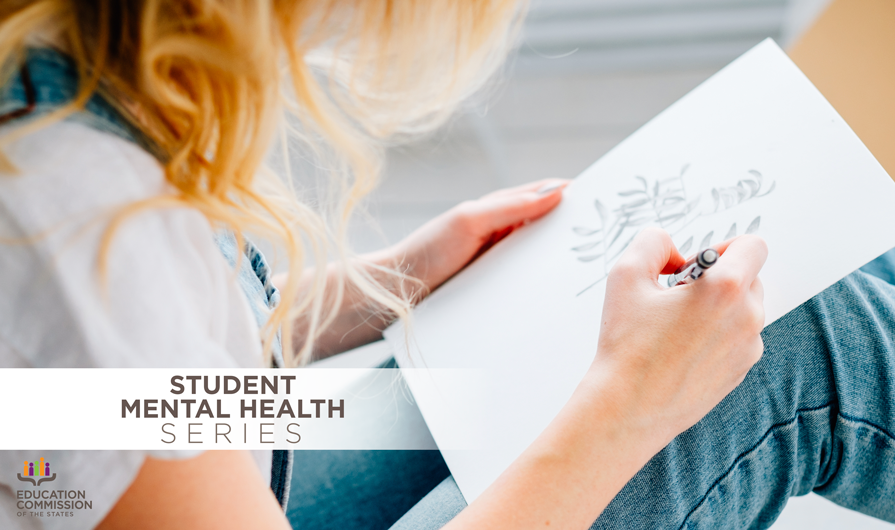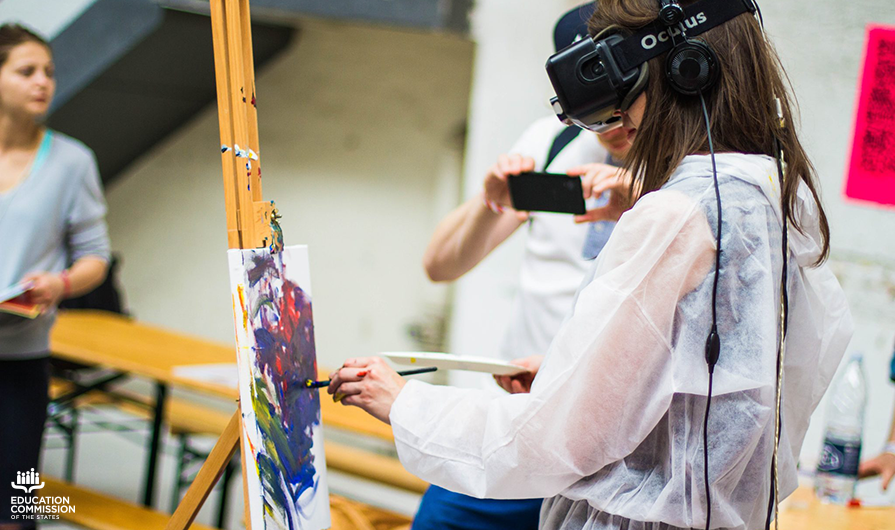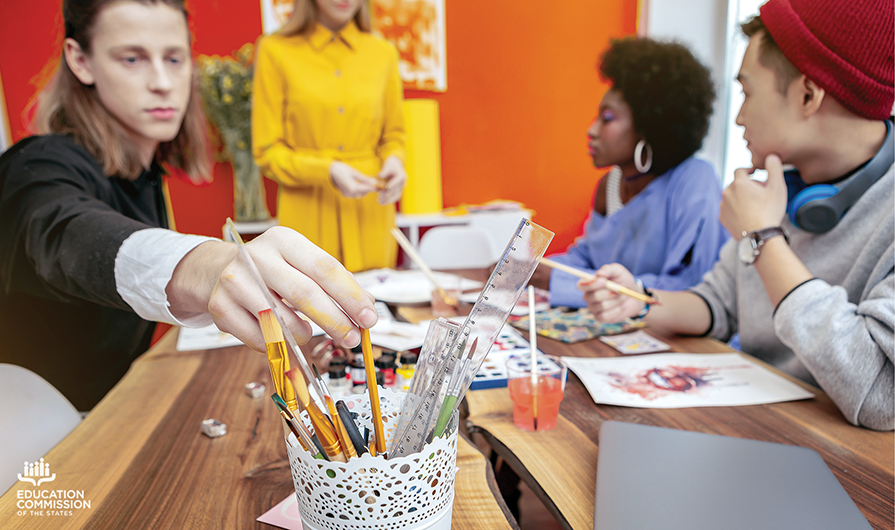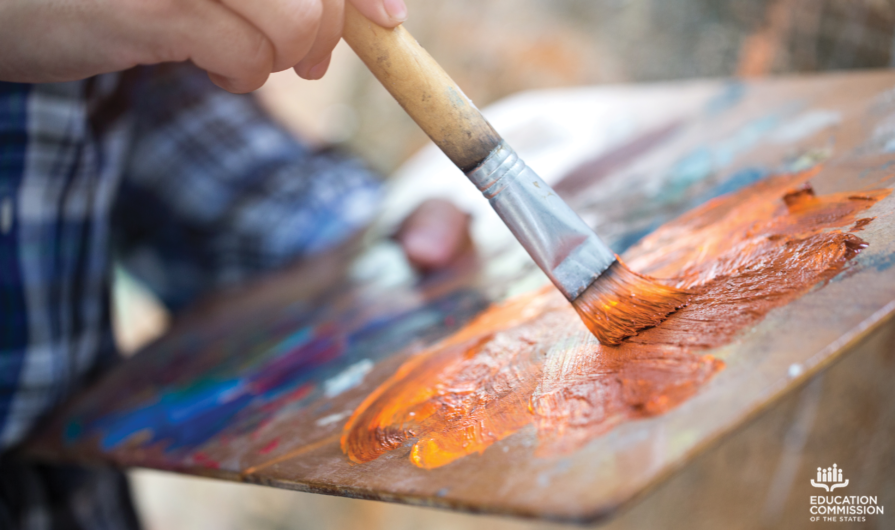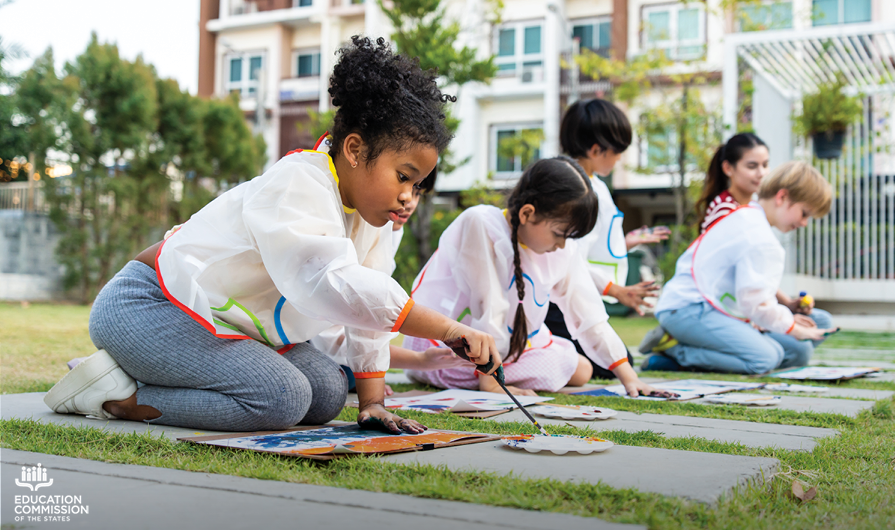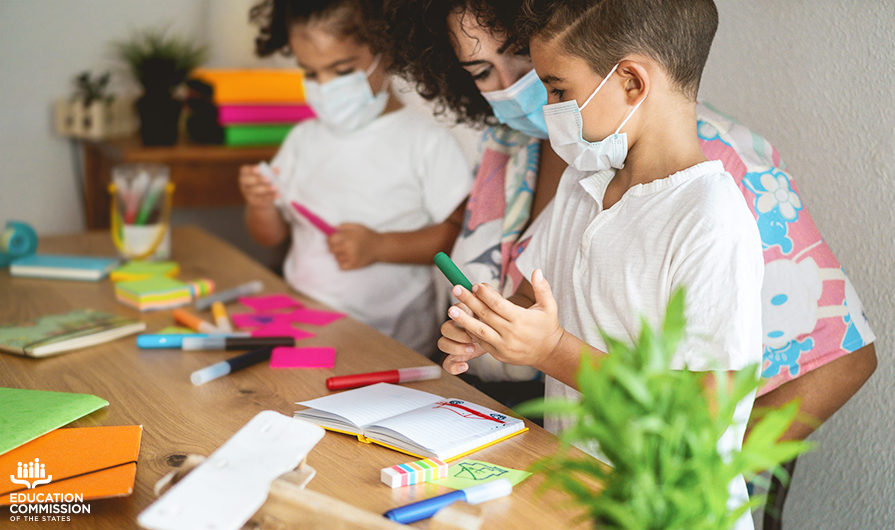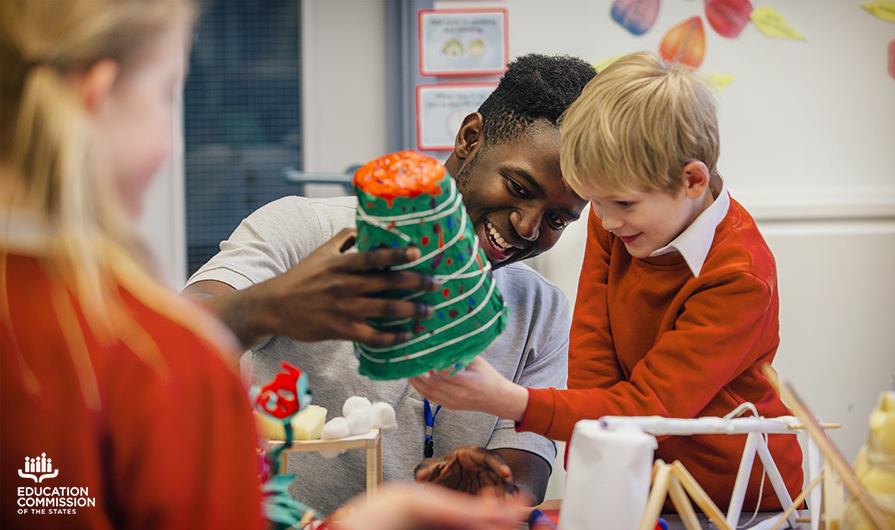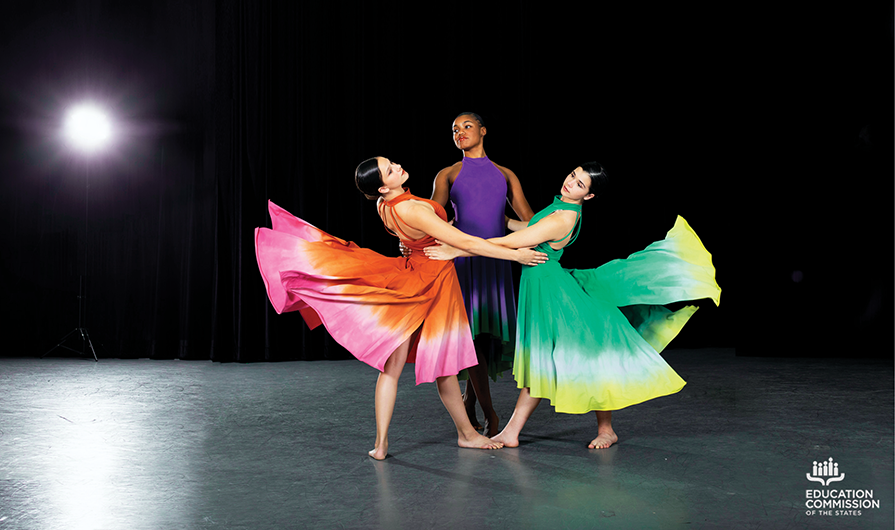By May of this year, an estimated 55.1 million K-12 students participated in virtual learning because of COVID-19. For some students, the shift disrupted access to educators, behavioral health staff, emotional supports and other components of in-school learning that support students’ overall wellness.
Nationally, arts education and education organizations have released resources that provide guidance for schools, districts and states as they respond to the needs of students, families and educators. Let’s take a closer look at how the arts can support student wellness.
Prioritize Trauma-Informed Teaching and Support Healing
Recent guidance from the Council of Chief State School Officers suggests that indicators of trauma can inform the development of appropriate assessments, interventions and policies to support positive outcomes for students. Trauma-informed approaches, including those that integrate the arts, recognize the signs of trauma, incorporate understandings of trauma into practices and seek to prevent re-traumatization. Arts education and integration provides an outlet for students to process their emotions from disaster and trauma to begin the healing process and build resiliency.
Support Students’ Mental Health
In a child’s early years, participation in the arts can have positive impacts on their cognitive development. Music instruction can help youths improve their self-efficacy and self-esteem, and can provide opportunities to develop relationship-building skills and form new perceptions about themselves and their communities. The benefits of arts participation can also help educators strengthen their self-efficacy and support positive personal transformations.
Build Strong Social and Emotional Competencies
The Collaborative for Academic, Social and Emotional Learning released guidance for schools and districts to create a foundation for SEL that focuses on emotional safety and secure relationships as fundamental alongside academics. Social and emotional competencies enhance students’ self-management, self-awareness, social awareness and relationship skills, and support responsible decision-making. The arts offer unique opportunities to support SEL skills such as emotional regulation, personal aspirations and compassion for others, which can effectively engage students facing higher levels of personal trauma or distress.
Create a Collaborative Learning Environment
Collaboration between classroom teachers, teaching artists and arts specialists can lead to strengthened connections between schools and the communities they serve. Communication between families and schools is an increasingly important component for overall student success especially while many schools are using remote learning. Arts education and arts integration can encourage the involvement of students, parents, teachers and staff to promote in-person and remote learning environments that positively impact student wellness.
Education leaders can consider the following strategies to include arts education as a core component of student wellness:
-
- Provide Arts-Based Professional Development: Schools may consider including arts teachers or external arts organizations to lead and coordinate professional development opportunities. The Maryland Centers for Creative Classrooms is a collaboration between the Maryland Department of Education Fine Arts Office, Arts Education in Maryland Schools and the Maryland State Arts Council that provides research-based professional development support to arts teachers, arts-integration teachers and teaching artists.
-
- Offer Standards-Based Curriculum Support: All 50 states and the District of Columbia have adopted arts education standards for early childhood, elementary and secondary education. The Arizona Department of Education and Arizona Commission on the Arts created an online handbook of resources, assessments and examples of student artwork to support educators in implementing an arts-based curriculum.
-
- Work With Art Therapists: Schools can engage licensed arts therapists as a part of behavioral health teams to provide a schoolwide trauma-informed approach. Educators can incorporate trauma-informed teaching practices within their classrooms and familiarize themselves with signs and symptoms of trauma.
-
- Engage Families and Communities: The National Parent Teacher Association and Americans for the Arts developed a reflection tool as part of the Arts Leaders Guide to strengthen family and community relationships. Education leaders can use this tool to assess current levels of engagement and ultimately enhance learning-opportunities collaboration with families.

